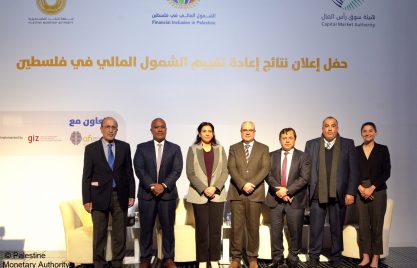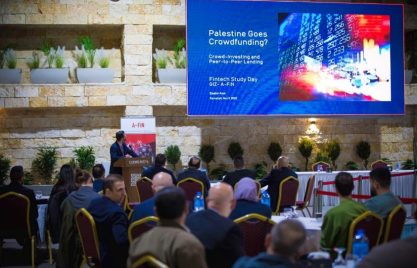New entry conditions from MFIs required in order to give more security to investments
The microfinance sectors in the MENA region have lacked sound regulation and a suitable support structure. This has for long discouraged investments that could provide the microfinance market with financial and technical support for professionalizing, growing, and reaching out to unbanked clients. But, this is changing. In the Palestinian Territories, the Palestine Monetary Authority (PMA) has taken over a supervisory role over the Palestinian microfinance sector. Today, it requires from MFIs a row of entry conditions to receive an official license as a “specialized lending institution”. Since 2012, the GIZ Regional Programme “Promotion of the Microfinance Sector in the MENA Region” (MFMR) supports the PMA in its efforts to improve and implement a framework that regulates and promotes the sector towards financial inclusion objectives.
The requirements that are and will be asked by the new regulator in terms of capital, legal form, governance, consumer protection and more already have a positive impact on the MFIs’ attraction to investors. The Arab Center for Agriculture Development (ACAD) for example has recently attracted new foreign social investor´s capital and technical support. ACAD is asked by regulation to transform from an NGO into a supervised microfinance financial company. The Frankfurt School of Finance & Management, EIB, Triple Jump and other international social investors have agreed to support ACAD on its way towards a regulated lending institution. With this new capital and knowledge, it can now invest significantly into its infrastructure, staff, product development and more. An increase in efficiency ultimately enables ACAD to reach more clients at less cost.
ACAD provides financial services in the West Bank and in Gaza Strip. Besides that, it plans to continue its social mission to also provide non-financial services for farmers and women. Around 70% of ACAD’s clients are women.
By Rania Abu Rabie



